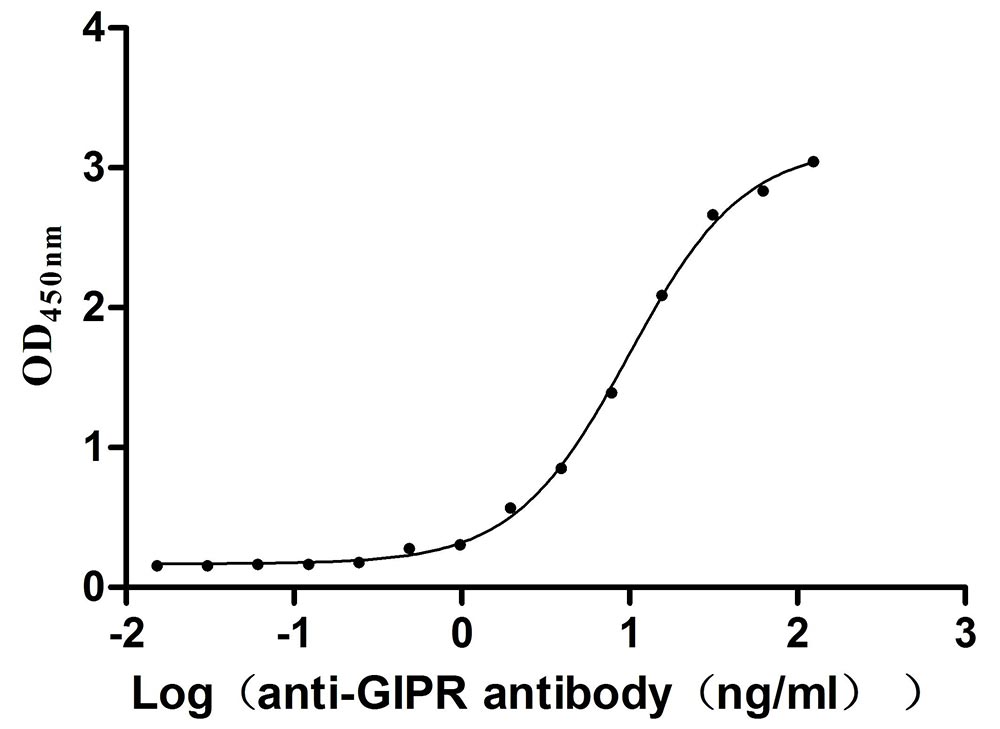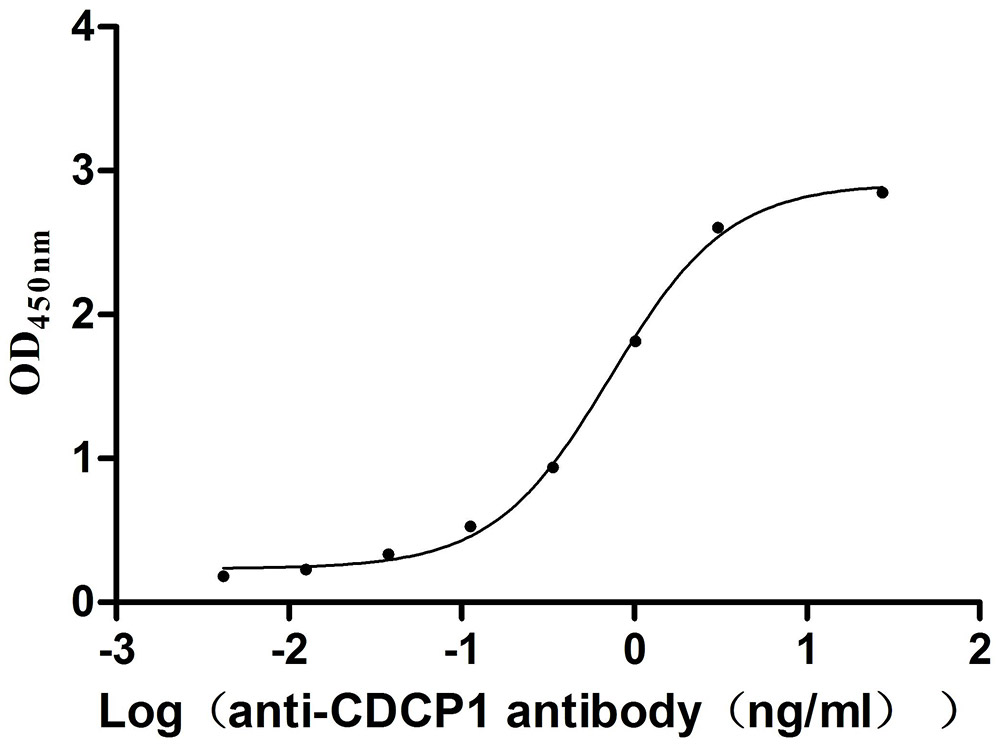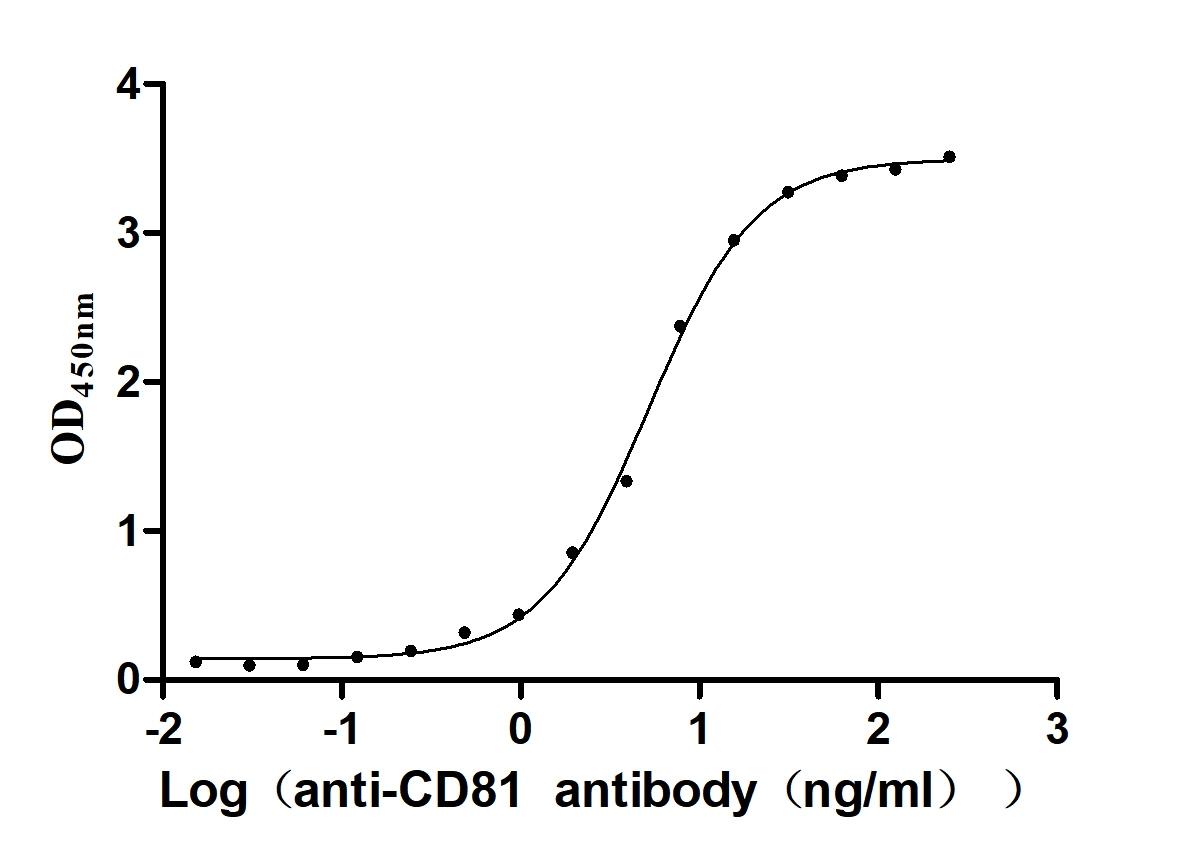Recombinant Mouse Retinoid isomerohydrolase (Rpe65)
-
中文名称:小鼠Rpe65重组蛋白
-
货号:CSB-YP821034MO
-
规格:
-
来源:Yeast
-
其他:
-
中文名称:小鼠Rpe65重组蛋白
-
货号:CSB-EP821034MO
-
规格:
-
来源:E.coli
-
其他:
-
中文名称:小鼠Rpe65重组蛋白
-
货号:CSB-EP821034MO-B
-
规格:
-
来源:E.coli
-
共轭:Avi-tag Biotinylated
E. coli biotin ligase (BirA) is highly specific in covalently attaching biotin to the 15 amino acid AviTag peptide. This recombinant protein was biotinylated in vivo by AviTag-BirA technology, which method is BriA catalyzes amide linkage between the biotin and the specific lysine of the AviTag.
-
其他:
-
中文名称:小鼠Rpe65重组蛋白
-
货号:CSB-BP821034MO
-
规格:
-
来源:Baculovirus
-
其他:
-
中文名称:小鼠Rpe65重组蛋白
-
货号:CSB-MP821034MO
-
规格:
-
来源:Mammalian cell
-
其他:
产品详情
-
纯度:>85% (SDS-PAGE)
-
基因名:
-
Uniprot No.:
-
别名:Rpe65; Retinoid isomerohydrolase; EC 3.1.1.64; All-trans-retinyl-palmitate hydrolase; Lutein isomerase; Meso-zeaxanthin isomerase; EC 5.3.3.22; Retinal pigment epithelium-specific 65 kDa protein; Retinol isomerase
-
种属:Mus musculus (Mouse)
-
蛋白长度:Full Length of Mature Protein
-
表达区域:2-533
-
氨基酸序列SIQIEHPAGGYKKLFETVEELSSPLTAHVTGRIPLWLTGSLLRCGPGLFEVGSEPFYHLF DGQALLHKFDFKEGHVTYHRRFIRTDAYVRAMTEKRIVITEFGTCAFPDPCKNIFSRFFS YFKGVEVTDNALVNIYPVGEDYYACTETNFITKINPETLETIKQVDLCNYISVNGATAHP HIESDGTVYNIGNCFGKNFTVAYNIIKIPPLKADKEDPINKSEVVVQFPCSDRFKPSYVH SFGLTPNYIVFVETPVKINLFKFLSSWSLWGANYMDCFESNESMGVWLHVADKKRRKYFN NKYRTSPFNLFHHINTYEDNGFLIVDLCCWKGFEFVYNYLYLANLRENWEEVKRNAMKAP QPEVRRYVLPLTIDKVDTGRNLVTLPHTTATATLRSDETIWLEPEVLFSGPRQAFEFPQI NYQKFGGKPYTYAYGLGLNHFVPDKLCKMNVKTKEIWMWQEPDSYPSEPIFVSQPDALEE DDGVVLSVVVSPGAGQKPAYLLVLNAKDLSEIARAEVETNIPVTFHGLFKRS
-
蛋白标签:Tag type will be determined during the manufacturing process.
The tag type will be determined during production process. If you have specified tag type, please tell us and we will develop the specified tag preferentially. -
产品提供形式:Lyophilized powder
Note: We will preferentially ship the format that we have in stock, however, if you have any special requirement for the format, please remark your requirement when placing the order, we will prepare according to your demand. -
复溶:We recommend that this vial be briefly centrifuged prior to opening to bring the contents to the bottom. Please reconstitute protein in deionized sterile water to a concentration of 0.1-1.0 mg/mL.We recommend to add 5-50% of glycerol (final concentration) and aliquot for long-term storage at -20℃/-80℃. Our default final concentration of glycerol is 50%. Customers could use it as reference.
-
储存条件:Store at -20°C/-80°C upon receipt, aliquoting is necessary for mutiple use. Avoid repeated freeze-thaw cycles.
-
保质期:The shelf life is related to many factors, storage state, buffer ingredients, storage temperature and the stability of the protein itself.
Generally, the shelf life of liquid form is 6 months at -20°C/-80°C. The shelf life of lyophilized form is 12 months at -20°C/-80°C. -
货期:Delivery time may differ from different purchasing way or location, please kindly consult your local distributors for specific delivery time.Note: All of our proteins are default shipped with normal blue ice packs, if you request to ship with dry ice, please communicate with us in advance and extra fees will be charged.
-
注意事项:Repeated freezing and thawing is not recommended. Store working aliquots at 4°C for up to one week.
-
Datasheet :Please contact us to get it.
靶点详情
-
功能:Critical isomerohydrolase in the retinoid cycle involved in regeneration of 11-cis-retinal, the chromophore of rod and cone opsins. Catalyzes the cleavage and isomerization of all-trans-retinyl fatty acid esters to 11-cis-retinol which is further oxidized by 11-cis retinol dehydrogenase to 11-cis-retinal for use as visual chromophore. Essential for the production of 11-cis retinal for both rod and cone photoreceptors. Also capable of catalyzing the isomerization of lutein to meso-zeaxanthin an eye-specific carotenoid. The soluble form binds vitamin A (all-trans-retinol), making it available for LRAT processing to all-trans-retinyl ester. The membrane form, palmitoylated by LRAT, binds all-trans-retinyl esters, making them available for IMH (isomerohydrolase) processing to all-cis-retinol. The soluble form is regenerated by transferring its palmitoyl groups onto 11-cis-retinol, a reaction catalyzed by LRAT.
-
基因功能参考文献:
- The present study describes identification of CU239, a novel non-retinoid inhibitor of RPE65, a key enzyme in the visual cycle. Our data demonstrated that CU239 selectively inhibited isomerase activity of RPE65, with IC50 of 6muM. PMID: 29684583
- Study describes a mouse model of Leber's Congenital Amaurosis type 2 with mutation in Rpe65 gene. Functional and biochemical studies confirm that vitamin A metabolism and visual processing are disrupted in this model. PMID: 27150101
- The loss of ERK1/2 activity resulted in a significant decrease in the level of RPE65 expression, a decrease in ocular retinoid levels concomitant with low visual function, and a rapid disorganization of RPE cells, ultimately leading to retinal degeneration. PMID: 29038159
- these observations suggest that D477G acts as a dominant-negative mutant of RPE65 that delays chromophore regeneration. PMID: 28041994
- The Leu450Met variant of RPE65 is expressed in C57BL/6 and in many genetically modified mice. It confers significant resistance to light induced retinal degeneration (LIRD). PMID: 27768794
- Influx of T lymphocytes was associated with retinal pigment epithelium and choroidal thinning and diminished expression of RPE65 mRNA, an essential enzyme of the visual cycle. PMID: 26392743
- the RPE65 protein expression was abnormal PMID: 27116862
- These data also help define minimal requirements of chromophore for photoreceptor survival in vivo and may be useful in assessing a beneficial therapeutic dose for RPE65 gene therapy in humans. PMID: 25972377
- properties of disease causing RPE65 with regard to molecular pathogenic mechanism PMID: 24849605
- The rd12 lesion is in Rpe65. The rd12 mutant phenotype inherits in a semidominant manner. The effects of the mutant mRNA on visual function may result from inefficient binding to ribosomes for translation. PMID: 24644049
- Despite the previously reported upregulation of Cspg5 during retinal degeneration in Rpe65/ mice, no protective effect or any involvement of Cspg5 in disease progression was identified. PMID: 24265546
- To recapitulate this event in vivo, we examined tumor formation in NOG mice after subcutaneous injection of iPSCs with or without an iPSC-derived RPE sheet (2.5 x 10(5) RPE cells). PMID: 23903667
- Cone-opsin trafficking defects were replicated in Rpe65-/- Rho-/- retina-retinal pigment epithelium cultures. PMID: 23734084
- The Rpe65KO and tvrm148 mutations do not complement one another, proving that the tvrm148 mutation occurs in the Rpe65 locus and is the causative lesion driving visual function loss. PMID: 23778877
- Aromatic residues in the substrate cleft of RPE65 protein govern retinol isomerization and modulate its progression. PMID: 22745121
- a role for MYO7A in the translocation of RPE65 PMID: 21493626
- Rpe65 deficiency may have many metabolic consequences in the underlying neuroretina. Glb1l3 was the only Glb-related member strongly downregulated in Rpe65(-/-) retinas before the onset and during progression of disease. PMID: 21633714
- Mef2c was the only Mef2 member markedly downregulated during retinal degeneration in Rpe65(-/-) mice. PMID: 21715356
- These results demonstrate that RPE65 within cones may be essential for the efficient regeneration of cone photopigments under bright-light conditions. PMID: 21753017
- Gene therapy regenerates protein expression in cone photoreceptors in Rpe65(R91W/R91W) mice. PMID: 21304899
- RPE65 is bound by Pyridinium bis-retinoid A2E, thus inhibiting the regeneration of 11-cis retinal, the chromophore of visual pigments - a unique mechanism by which A2E may impair vision in Stargardt disease. PMID: 20876139
- oxidative stress during the visual cycle results in cleavage of RPE65 PMID: 20510285
- FATP1 inhibits 11-cis retinol formation via interaction with the visual cycle retinoid isomerase RPE65 and lecithin:retinol acyltransferase PMID: 20356843
- higly conserved protein; genes for mouse and human are conserved in overall structure. PMID: 11740468
- Rpe65 specifically binds all-trans-retinyl palmitate but not 11-cis-retinyl palmitate by a spectral-shift assay. PMID: 14532273
- RPE65 is not critical for generation of 9-cis-retinal in the eye PMID: 14578454
- An allele encoding a leucine at amino acid 450(leu450) of the RPE65 protein is associated with greater sensitivity to light damage than as allele encoding methionine (met 450). PMID: 15112105
- show that an amino acid variant in murine Rpe65is associated with reduced A2E accumulation and diminished tendency towards A2E/iso-A2E formation PMID: 15277666
- Age-related changes in the basement membrane of the retinal pigment epithelium occur earlier in life and are more extensive in Rpe65 mutant mice. PMID: 15378383
- As a chaperone, each RPE65 molecule can deliver retinyl ester to the isomerohydrolase of 11-cis-retinal at a rate of 10 molecules a minute PMID: 16026160
- retinal degeneration was reduced in mice expressing the Rpe65(450Met) variant and that these mice retained more visual pigment rhodopsin than did transgenic mice expressing the Rpe65(450Leu) variant. PMID: 16519667
- In rpe65 deficient mice, the level of photoreceptor degeneration is less than in the agouti animals, which have an increased pigment and decreased free opsin level. PMID: 16553465
- Normal photoentrainment was lost in Rpe65(-/-);melanopsin(-/-) mice, and, instead, a diurnal phenotype was observed PMID: 16788070
- results suggest that RPE65 defect triggers an overall remodeling of the neurosensitive retina that may, in turn, disrupt photoreceptor homeostasis and induce apoptosis signaling cascade toward retinal cell death. PMID: 17012256
- By demonstrating that lentivirus-mediated Rpe65 gene transfer protects and restores the function of cones in the Rpe65(-/-) mouse, this study reinforces the therapeutic value of gene therapy for RPE65 deficiencies. PMID: 17032058
- RPE65 has a role in rod and cone pigment regeneration PMID: 17249562
- LRAT is not required for isomerase activity beyond synthesis of retinyl-ester substrate, and the association of Rpe65 with membranes is neither dependent upon LRAT nor the result of S-palmitoylation PMID: 17504753
- Study found that in contrast to Rpe65 null mice, low but substantial levels of both RPE65 and 11-cis-retinal were present in R91W knock-in mice leading to a progressive loss of photoreceptor cells and retinal function. PMID: 17933883
- Wildtype dog RPE65 is more active than wildtype mouse RPE65. The effect of Met at aa450 is more severe in mouse RPE65 than in dog. Effects of variation at residues 446 (K or R) modulate variation at aa450. PMID: 17960118
- Lentiviral gene transfer-mediated cone vision restoration in Rpe65 knockout mice is reported. PMID: 18188932
- retinylamine was the most potent and specific inhibitor of the retinoid cycle among the tested compounds and that it targets the retinoid isomerase, RPE65 PMID: 18195010
- These data show that the Lrat-/- and Rpe65-/- mice are comparable models for studies of Leber congenital amaurosis and that the destructive cone opsin mistrafficking is caused by the lack of 11-cis retinal. PMID: 18296659
- During retinal degeneration in Rpe65-/- mice, neuroglycan C(NGC) expression is induced in neural retina, but not in retinal pigment epithelium, where NGC is expressed at highest levels. PMID: 19050768
- Knockout of the Rpe65 gene gave severely night-blind animals with lack of 11-cis retinoids in retina and excess of all-trans retinyl esters in the retinal pigment epithelium,consistent with blockade of the all-trans to 11-cis isomerization of retinoids. PMID: 9843205
显示更多
收起更多
-
相关疾病:Defects in Rpe65 are the cause of light damage susceptibility (LDS) of the retina.
-
亚细胞定位:Cytoplasm. Cell membrane; Lipid-anchor. Microsome membrane.
-
蛋白家族:Carotenoid oxygenase family
-
组织特异性:Retinal pigment epithelium specific.
-
数据库链接:
KEGG: mmu:19892
STRING: 10090.ENSMUSP00000029824
UniGene: Mm.131708
Most popular with customers
-
Recombinant Human Leukemia inhibitory factor receptor (LIFR), partial (Active)
Express system: Mammalian cell
Species: Homo sapiens (Human)
-
Recombinant Human Glucagon receptor (GCGR), partial (Active)
Express system: Mammalian cell
Species: Homo sapiens (Human)
-
Recombinant Macaca fascicularis Claudin (CLDN18)-VLPs (Active)
Express system: Mammalian cell
Species: Macaca fascicularis (Crab-eating macaque) (Cynomolgus monkey)
-
Recombinant Macaca fascicularis CD44 antigen (CD44), partial (Active)
Express system: Mammalian cell
Species: Macaca fascicularis (Crab-eating macaque) (Cynomolgus monkey)
-
Recombinant Human Microtubule-associated protein tau (MAPT) (Active)
Express system: Mammalian cell
Species: Homo sapiens (Human)
-
Recombinant Mouse Gastric inhibitory polypeptide receptor (Gipr), partial (Active)
Express system: Mammalian cell
Species: Mus musculus (Mouse)
-
Recombinant Mouse CUB domain-containing protein 1 (Cdcp1), partial (Active)
Express system: Mammalian cell
Species: Mus musculus (Mouse)
-
Recombinant Human CD81 antigen (CD81), partial (Active)
Express system: Mammalian cell
Species: Homo sapiens (Human)


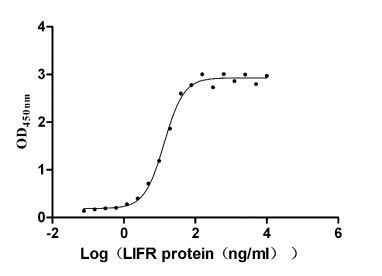
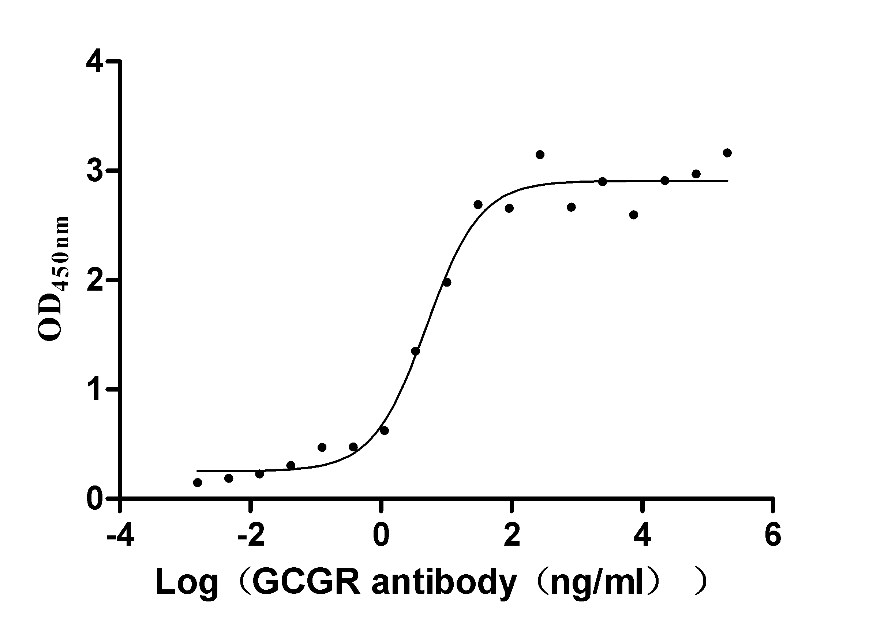
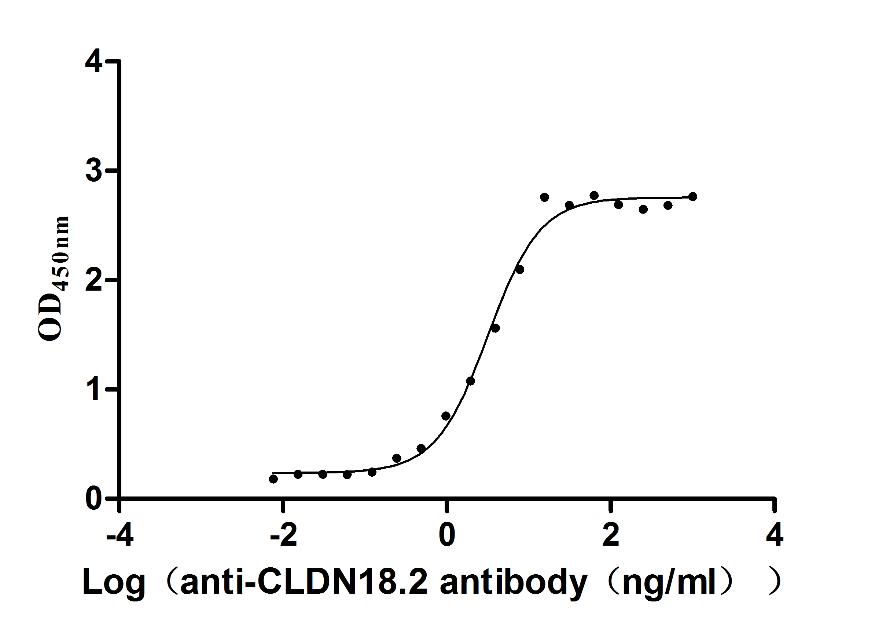
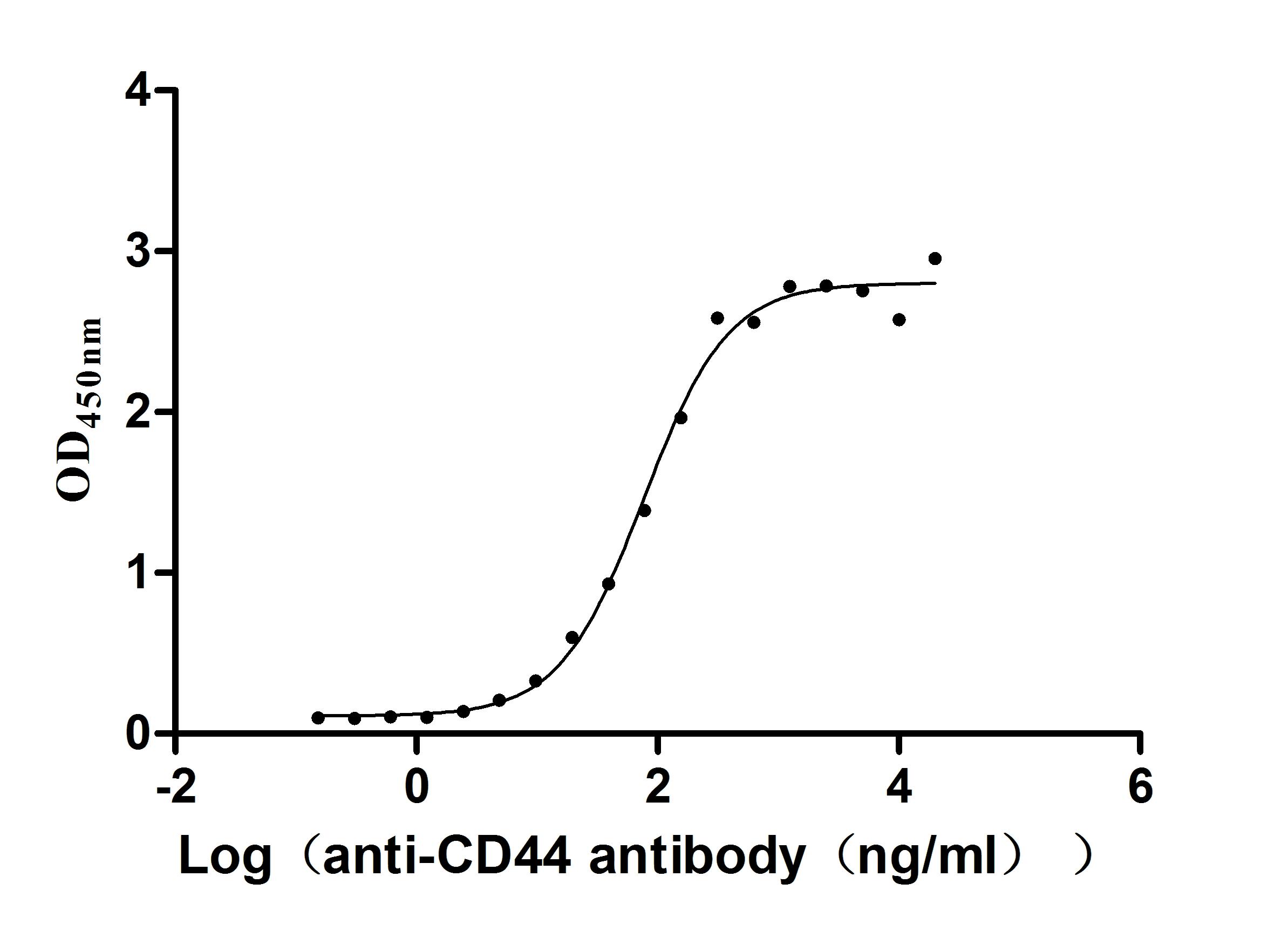
-AC1.jpg)
